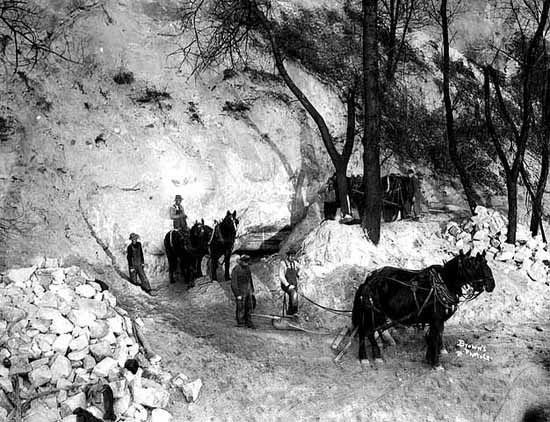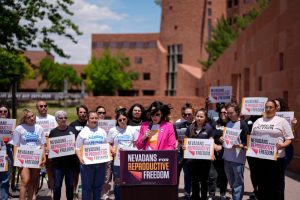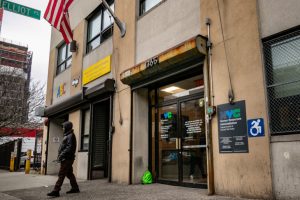
St. Paul, native community break ground on Wakan Tipi Center in Dayton’s Bluff
For a decade or more, organizers of the Lower Phalen Creek Project eyed the century-old Standard Oil warehouse as a potential home for a new nature and cultural interpretative center within the 27-acre Bruce Vento Nature Sanctuary at the base of Dayton’s Bluff. And then came the realization that the dream was not to be, at least not in that facility.
The walls came crashing down off the vacant but longstanding warehouse in 2015, as the nonprofit’s organizers — including then-executive director Dan McGuiness — decided the aged building was too pricey to preserve and retrofit into a public-facing nature center. Its demolition that year ignited hope that a new $5 million structure could be built in its place.
With the pandemic playing no small role in disrupting planning, the past nine years have been full of fundraising stops and starts. Nevertheless, St. Paul Mayor Melvin Carter and a who’s who of city, county, parks and indigenous leaders came together Monday afternoon for the groundbreaking of the future Wakan Tipi Center, a $14.3 million, city-owned nature center slated to open its doors in late 2025 beneath the Kellogg Boulevard/Third Street bridge.
Preservation of nature, culture
To say that plans had evolved in the past 20 years or more would be putting it lightly.
The Lower Phalen Creek Project was renamed last year Wakan Tipi Awanyankapi. It was refashioned as a native-led nonprofit organization dedicated to the preservation of nature and culture within the area surrounding Wakan Tipi, a sacred cave that many St. Paul residents grew up referring to as Carver’s Cave after the European explorer who befriended the native community there.
The nonprofit will be the building’s primary tenant.
The 7,500-square-foot center, which will be constructed by Versacon contractors off Fourth and Commercial street, is intended to showcase the history, language and values of the Dakota tribes with an exhibit hall, classrooms, ceremony space, a community gathering area, teaching kitchen and teaching gardens.
Funding
A capital campaign launched in earnest in 2018, raising more than $6.5 million from the state, as well as upwards of 60 grants, with some approaching $1 million or more from the Bush Foundation, the Katherine B. Andersen Fund of the St. Paul Foundation, the Margaret A. Cargill philanthropies and the National Endowment for the Humanities.
Fundraising for the building and gardens is complete, said Maggie Lorenz, executive director of Wakan Tipi Awanyankapi, but the goal remains to raise another $2 million or so for a second phase of construction once the Kellogg Boulevard/Third Street bridge is replaced in 2027. That second phase would entail landscaping, trail connections, expansion of the permanent parking lot, construction of a multi-vehicle garage that would house a youth transportation van, a truck and a utility terrain vehicle to enable land stewardship.
Katherine Beane, who chairs the nonprofit and directs the Minnesota Museum of American Art, said she appreciated the willingness of the founders of the Lower Phalen Creek Project to transition to a Dakota-oriented initiative.
“They were allies who were willing to let go and make sure the decision-making and the direction would be under the leadership of the community,” she said. “At the point our organization became a native-led organization, we knew it was going to be a success.”
Related Articles
Violent Crime unit teaming BCA agents with local cops to focus on guns, drugs
Charges dismissed in attempted murder case outside St. Paul store
Hey Charles Barkley: Forgetting your Minneapolis visits? Here’s where to find a more memorable meal in St. Paul.
MnDOT to host virtual meeting on U.S. Hwy. 52/Lafayette Bridge on Tuesday
St. Paul: Luther Seminary cancels Safe Space shelter deal with Ramsey County


